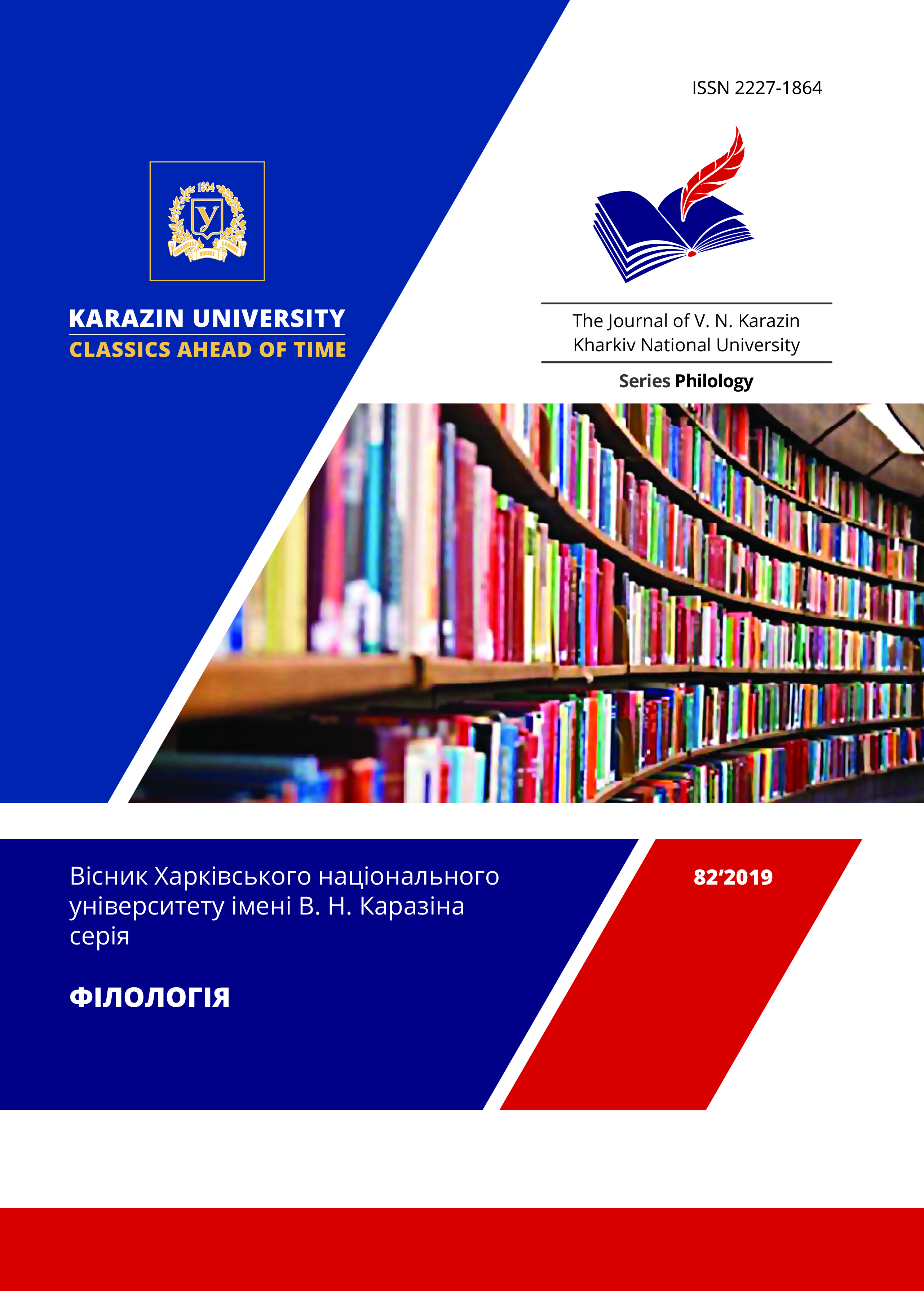The genre of spiritual autobiography features in the novel by B. L. Pasternak “Doctor Zhivago”
Abstract
The article deals with realization of the canonical spiritual autobiography genre in the novel by B. L. Pasternak Doctor Zhivago. For the first time the classical canon of spiritual autobiography is embodied in the Confession by St. Augustine. The following genre signs of spiritual autobiography are distinguished: the choice from the series of events only those moments that contributed to the spiritual growth of the hero; focusing not on the external course of events, but on the internal spiritual processes; the moment of insight, spiritual awakening as a plot-compositional pointe, the culmination of the narrative and, accordingly, the turning point of the hero's life. According to the establishment of eternal history that leads to the beginning in the human spirit with Christ`s sacrifice, the theme of the path is revealed in the new Gospel light in spiritual autobiography - as a person’s ascension from the carnal to the spiritual level of consciousness and achievement of “eternal life”. The main genre-forming principle, besides the listed ones, is the moment of insight, spiritual awakening as a plot-compositional pointe of a work that gets multi-level realization in the novel by B. L. Pasternak Doctor Zhivago: on an individual and biographical, historical, eternal, sacral levels. Such a multi-level realization of the moment of spiritual awakening determines the polyphonic and tiered hierarchical organization of the subject component of the story. The architectonic center of the subject component includes hero-author, hero-generation and hero-Christ paradigms. The interrelation of the subject components is based on the model of the symbolic-iconic generalization of being. The artistic detachment from specific prototypes makes Yuri Zhivago and his contemporaries symbolic figures, connecting microcosms. They interact and become parts and symbols of each other and the whole world at this level of generalization.
Such complex subject organization contributed to the transformation and modernization of the canon of spiritual autobiography in the novel by B. L. Pasternak “Doctor Zhivago”.
Downloads
References
Averin B. V. (2014). Akt vospominaniya i yazyk vospominaniya. «Kotik Letaev» Andreya Belogo. Ot Tolstogo do Nabokova: Iz istorii russkoy literatury. SPb: Izdatel'tvo imeni N. I. Novikova; Izdatel'skiy dom «Galina skripsit» [in Russian].
Bakhtin M. M. (1986). K filosofii postupka. Filosofiya i sotsiologiya nauki i tekhniki. Ezhegodnik 1984–1985 (pp. 80–160). Moskva. [in Russian].
Berdyaev N. A. (2015). Samopoznanie: Opyt filosofskoy avtobiografii. SPb.: Azbuka, Azbuka-Attikus [in Russian].
Bondarchuk E. M. (1999.) Avtor i geroy v romane Borisa Pasternaka «Doktor Zhivago»: svoeobrazie subjektnykh i vnesujektnykh form vyrazheniya avtorskogo soznaniya. Extended abstract of candidate’s thesis. Samara. Retrieved from http://www.dissercat.com/content/avtor-i-geroi-v-romane-borisa-pasternaka-doktor-zhivago-svoeobrazie-subektnykh-i-vnesubektny [in Russian].
Gasparov B. M. (1993). Vremennoy kontrapunkt kak formoobrazuyushchiy printsip romana Pasternaka «Doktor Zhivago». Literaturnye leytmotivy. Ocherki po russkoy literature KhKh veka. Moskva. [in Russian].
Gladkov A. (2002). Vstrechi s Pasternakom. Moskva. [in Russian].
Grimova O. A. (2014). Zhanrovoe svoeobrazie romana. Poetika «Doktora Zhivago» v narratologicheskom prochtenii. Kollektivnaya monografiya. Pod redaktsiey V. I. Tyupy. Moskow: Intrada. [in Russian].
Isupov K. G. (2010). Sud'by klassicheskogo naslediya i filosofsko-esteticheskaya kul'tura Serebryanogo veka. SPb.: Russkaya khristianskaya gumanitarnaya akademiya. [in Russian].
Kovyrshina S. V. (2004). Filosofskaya avtobiografiya kak forma dukhovnogo tvorchestva, zhanr diskursa i narrativ epokhi. Extended abstract of candidate’s thesis. Ural Federal University. Yekaterinburg. [in Russian].
Likhachev D. S. (1988). Razmyshlyaya nad romanom B. L. Pasternaka «Doktor Zhivago». Novyy mir, 1, 5–22. [in Russian].
Maksimov D. E. (1981). Poeziya i proza A. Bloka. L: Sovetskiy pisatel'. [in Russian].
Pasternak B. L. (2016). Maloe sobranie sochineniy. SPb.: Azbuka, Azbuka-Attikus. [in Russian].
Pasternak B. L. (2003). Novootkrytye pis'ma k Ariadne Efron. Znamya. № 11. [in Russian].
Pasternak E. B. (1989). Boris Pasternak: Materialy dlya biografii. M.: Sovetskiy pisatel'. [in Russian].
Pakhareva T. A. Russkaya literatura Serebryanogo veka v dialoge s kul'turoy evropeyskogo Srednevekov'ya. Materialy k spetskursu (v rukopisi).
Perepiska Borisa Pasternaka. (1990). Vstuplenie, stat'ya L. Ginzburg; Sostavlenie, podgotovka tekstov i kommentariev E. V. Pasternak i E. B. Pasternakom. Moskow: Khudozhestvennaya literatura. [in Russian].
Smirnov. I. P. (1994). Antiutopiya i teoditseya v «Doktore Zhivago». V: Wiener Slawislischer Almanach. Bd. 34[in Russian].
Tamarchenko N. D. (2006). Syuzhet ispytaniya: opyt tipologii (na materiale russkoy povesti Serebryanogo veka). Filologicheskiy zhurnal. Novyy filologicheskiy vestnik, 2 (3) [in Russian].
Shalamov V. (2005). Sobranie sochineniy (Vol. 4). Moskow. [in Russian].
Shcheglov Yu. K. (1998). O nekotorykh spornykh chertakh poetiki pozdnego Zhivago (Avantyurno-melodramaticheskaya tekhnika v «Doktore Zhivago»). Pasternakovskie chteniya. Vyp. 2. Moskva [in Russian].




